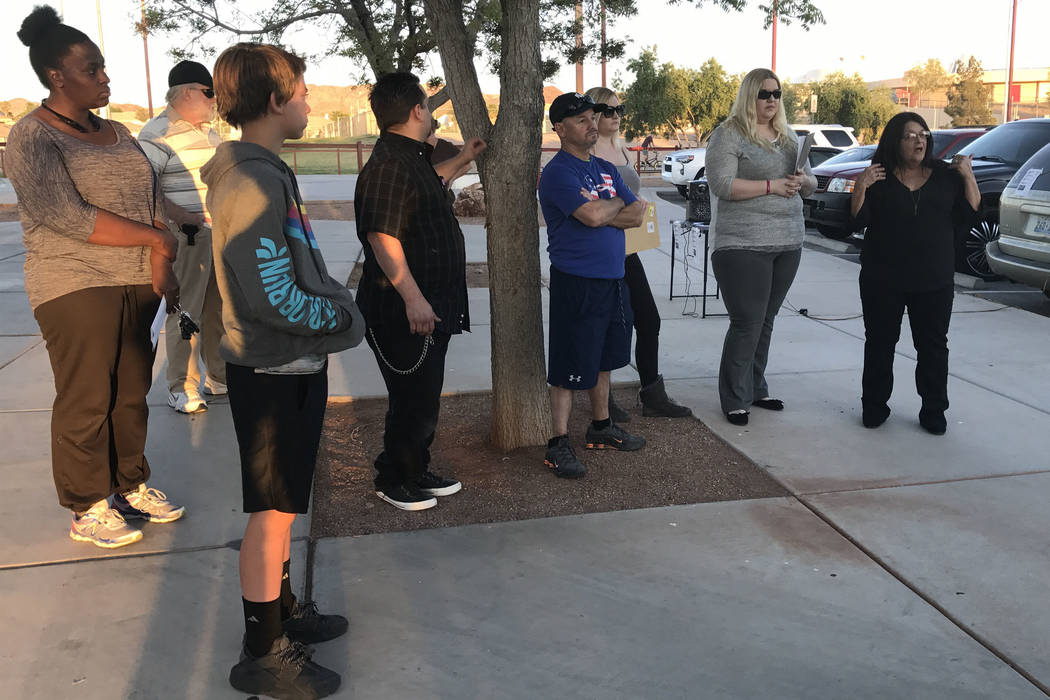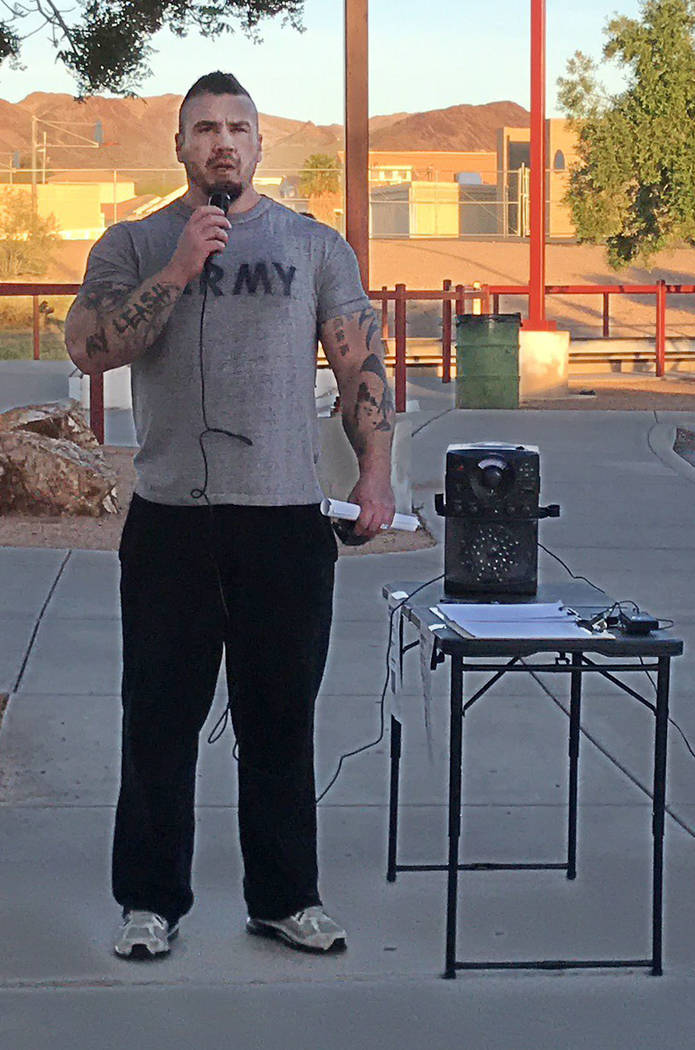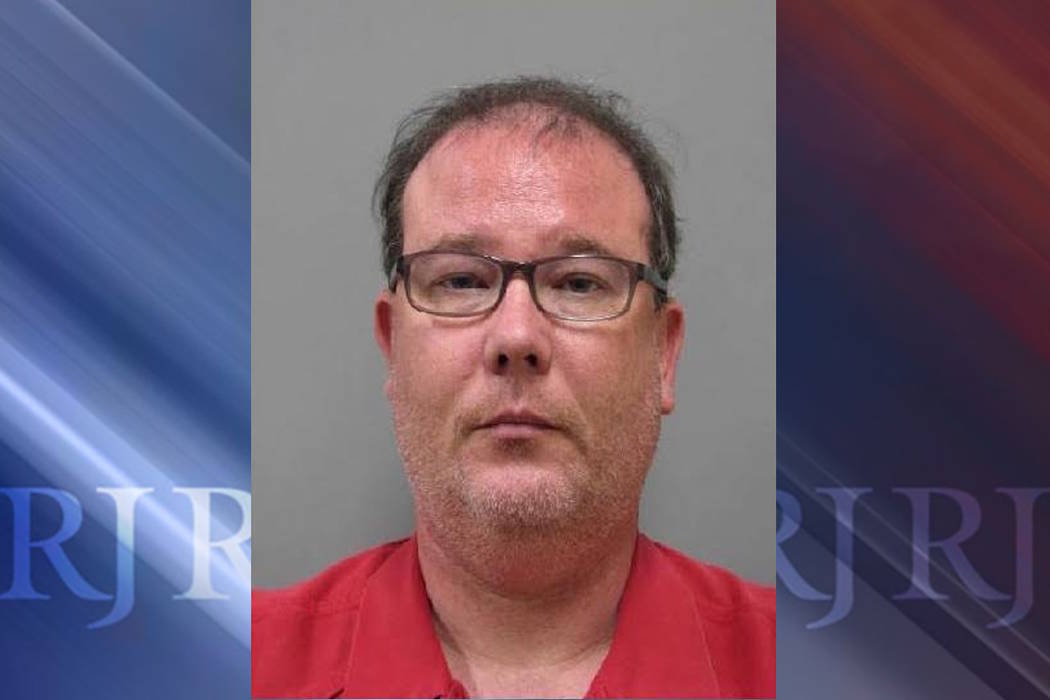Henderson parents demand CCSD action to protect students
Dakota Routh said he had no idea his then-12-year-old daughter filed a written complaint last year against her teacher, Jeffrey Schultz, until Henderson police called him last week.
That’s when he found out that his daughter had issues with the teacher, Routh said, that included saying inappropriate things to her and rubbing her shoulders.
“The school never called us,” he said. “Nobody ever called us.”
It wasn’t until last Tuesday — after another Brown Junior High parent said he called the police to investigate an incident with his daughter — that Schultz was arrested.
Chad Jensen, who said his 13-year-old daughter was among the three girls who most recently complained about Schultz, called police after the school told him they couldn’t release information on the incident.
Jensen is among a group of parents at Brown Junior High who are demanding that the Clark County School District to do more to protect children from teachers who engage in sexual misconduct with students.
More than a dozen parents gathered Wednesday at Hayley Hendricks Park in Henderson and also called for the removal of Principal Wendy Phelps.
Parents circulated a petition for Phelps’ removal that they plan to present at the next School Board meeting, claiming that previous complaints about Schultz were ignored.
“I would like to see everybody help me by going to the board meetings, showing them that parents care,” said Christal Metcalf, who organized the meeting. “It’s more than just teaching our kids. It’s making sure our kids are safe.”
Schultz is among nine staff members arrested so far this year for sexual misconduct or inappropriate behavior with a student, according to the most recent district records. He was previously the subject of two disciplinary investigations — one at Brown and one at Bailey Middle School.
Still, he remained employed with the district until three other female students reported feeling uncomfortable in a conversation he had with them about underwear.
COMPLAINTS IGNORED
Schultz’s case is commonly referred to in the education field as “passing the trash” — the moving of staff who have an inappropriate history with students from one school to another.
After school officials would not divulge information, Jensen asked his daughter about the incident, he said, to find out more about what happened.
“When there’s one incident, they need to pursue it and check it out, not just brush it under,” Jensen said. “No matter what it is. If a student feels uncomfortable for something that’s said, you just need to fulfill and check out everything about it, not just (say) ‘Oh, well, that’s just how he is.’”
Routh said the incidents with Schultz and those three girls wouldn’t have occurred if the school had addressed his daughter’s situation a year ago.
“I want them to take ownership for the mistakes that they’re making,” Routh said. “They have a principal who is essentially neglecting their kids and adding fuel to the fire.”
District spokeswoman Melinda Malone said she could not speak to any personnel matters involving the principal or other staff.
But the district has had previous trouble with so-called “passing the trash” cases.
In March, the School Board approved a $250,000 settlement for a 2013 case involving an alleged three-way sexual encounter with a student and two teachers. One of those teachers, John Stalmach, had been investigated and suspended from a previous school for an inappropriate relationship with a student, according to a police report.
The district gives employees notice that they are being investigated, according to Malone. The employee can choose a representative — such as someone from their union or their attorney — to be present during the investigatory meeting.
If the investigation finds that the employee has committed a violation, the employee is “subject to progressive disciplinary action,” she said.
If an employee is criminally charged, the district moves forward with dismissal, Malone said.
“The employee would then receive the ‘superintendent’s letter’ suspending the employee without pay until the matter is resolved,” she said.
Schultz declined to comment when reached by phone Thursday.
Contact Amelia Pak-Harvey at 702-383-4630 or apak-harvey@reviewjournal.com. Follow @AmeliaPakHarvey on Twitter.
CCSD staff arrested for sexual misconduct/inappropriate behavior with students
2012-13: 3 (these are CCSD PD arrests only, do not include arrests from other police departments)
2013-14: 3 (these are CCSD PD arrests only, do not include arrests from other police departments)
2014-15: 10
2015-16: 10
2016-17 (current school year): 9
Source: Clark County School District






























